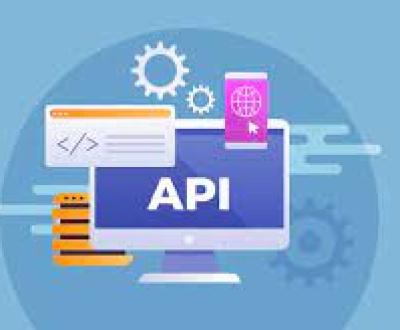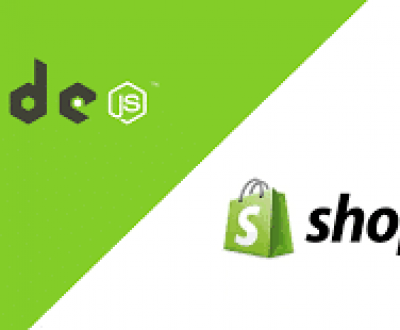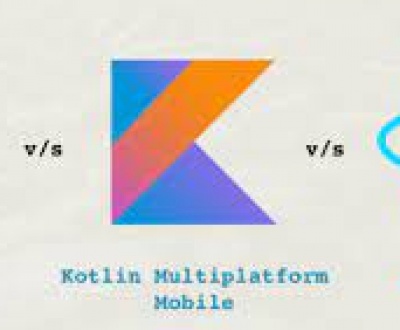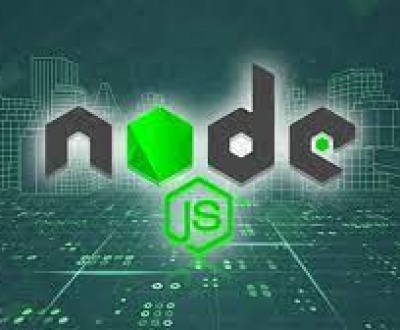MERN Stack vs Shopify: Choosing the Right Platform for Multi-Vendor E-commerce
- November 6, 2024
- eCommerce web design, Technology, Web design, web development

Building a robust multi-vendor e-commerce platform requires careful selection of a technology stack that aligns with your business goals, scalability requirements, and development resources. MERN Stack (MongoDB, Express, React, Node.js) and Shopify are two popular options, each with its advantages and limitations.
In this article, low-cost web design company in Bangladesh will compare MERN and Shopify, discuss when to use each, and explore which one is better suited for multi-vendor e-commerce.
Overview of MERN Stack and Shopify
MERN Stack
The MERN stack is a JavaScript-based technology stack ideal for building full-stack applications:
- MongoDB: A NoSQL database for flexible data storage.
- Express: A minimal, unopinionated Node.js web application framework.
- React: A front-end library for building interactive UIs.
- Node.js: A runtime that allows JavaScript to run on the server.
Why Use MERN for E-commerce?
- Full Customization: MERN allows you complete control over the front-end and back-end, making it ideal for custom e-commerce applications.
- Scalability: With MongoDB’s horizontal scaling and React’s component-based structure, MERN can handle a large user base.
- Real-Time Data: Ideal for real-time updates like inventory, live notifications, and chat features.
When to Use MERN for E-commerce
- Custom Requirements: If your e-commerce platform has unique business logic or features that standard platforms don’t support, MERN’s flexibility is invaluable.
- Scalable Architecture: MERN is suitable for applications that may grow significantly over time, especially if the architecture requires frequent updates and customizations.
Shopify
Shopify is a hosted e-commerce platform that allows you to quickly set up an online store with minimal coding. It also supports a multi-vendor setup through plugins and has built-in e-commerce features like payment gateways, inventory management, and SEO tools.
Why Use Shopify for E-commerce?
- Quick Setup: Shopify is designed to get a store up and running quickly, even for beginners.
- Built-In E-commerce Features: Shopify offers an extensive suite of tools, from payment gateways to inventory management.
- Apps and Plugins: The Shopify App Store has a variety of plugins for additional features, including multi-vendor support.
When to Use Shopify for E-commerce
- Time Constraints: If you need a platform set up quickly with minimal development effort, Shopify is a great choice.
- Limited Technical Resources: Shopify handles hosting, maintenance, and security, making it ideal if you lack an in-house development team.
- Focus on Sales and Marketing: If your priority is sales and marketing rather than custom features, Shopify’s ecosystem can help you grow quickly.
Multi-Vendor E-commerce: MERN Stack vs Shopify
Creating a multi-vendor e-commerce platform involves unique challenges, such as managing multiple vendors, handling different commission structures, and facilitating secure transactions. Here’s how MERN and Shopify handle these requirements.
MERN Stack for Multi-Vendor E-commerce
With the MERN stack, you can build a fully customized multi-vendor e-commerce solution. Here’s an overview of key features and an example of implementing a multi-vendor structure.
Key Features of a Multi-Vendor Platform with MERN:
- Vendor Management: Create custom dashboards for vendors, allowing them to add products, track orders, and view earnings.
- Commissions: Set up commission structures for different vendors, handled by the back-end.
- Order Management: Track orders across multiple vendors with custom statuses and notifications. Read More: 10 Unique Problems of E-Commerce Website Design and Technical Solutions
Sample Code for Vendor and Product Setup
- Database Models: Define
VendorandProductmodels with relationships.
// models/Vendor.js
import mongoose from 'mongoose';
const VendorSchema = new mongoose.Schema({
name: { type: String, required: true },
email: { type: String, required: true, unique: true },
products: [{ type: mongoose.Schema.Types.ObjectId, ref: 'Product' }]
});
export default mongoose.model('Vendor', VendorSchema); // models/Product.js
import mongoose from 'mongoose';
const ProductSchema = new mongoose.Schema({
name: { type: String, required: true },
price: { type: Number, required: true },
vendor: { type: mongoose.Schema.Types.ObjectId, ref: 'Vendor' },
stock: { type: Number, default: 0 },
});
export default mongoose.model('Product', ProductSchema);- API Routes for Product Management: Implement REST API routes using Express for vendors to add, update, and delete products. Read more: The Pivotal Role of APIs in Modern Web Development
// routes/api/vendor.js
import express from 'express';
import Vendor from '../models/Vendor';
import Product from '../models/Product';
const router = express.Router();
// Add a new product
router.post('/:vendorId/products', async (req, res) => {
try {
const vendor = await Vendor.findById(req.params.vendorId);
const newProduct = new Product({ ...req.body, vendor: vendor._id });
await newProduct.save();
vendor.products.push(newProduct);
await vendor.save();
res.status(201).json(newProduct);
} catch (error) {
res.status(400).json({ error: error.message });
}
});
export default router;Advantages of MERN for Multi-Vendor E-commerce
- Custom Workflows: You can create custom dashboards, inventory management, and order tracking tailored to each vendor’s needs.
- Full Control: MERN lets you control everything from front-end to database structure, enabling unique features like dynamic pricing and personalized vendor commissions.
- Scalability: With Node.js handling real-time updates, a MERN-based platform can scale to handle numerous vendors and high traffic.
Disadvantages of MERN:
- Development Time: Building everything from scratch can be time-consuming.
- Maintenance: You’ll need to handle security, hosting, and updates yourself.
Shopify for Multi-Vendor E-commerce
Shopify offers a quick and efficient setup for multi-vendor platforms through apps like Multi Vendor Marketplace by ECommerce Website Design Services in Bangladesh. Here’s how Shopify supports multi-vendor e-commerce.
Key Features of Multi-Vendor Platforms on Shopify:
- App Integration: Use third-party apps like Bhavitra techsolutions’s Multi Vendor Marketplace to add multi-vendor capabilities.
- Vendor Commission Management: Set up different commission structures for vendors.
- Centralized Management: Vendors can manage their products, view orders, and check earnings directly from the Shopify app.
Steps to Set Up a Multi-Vendor Marketplace with Shopify
- Install Multi Vendor Marketplace App: Go to the Shopify App Store, search for “Multi Vendor Marketplace by Bhavitra techsolutions,” and install the app.
- Configure Vendor Accounts: The app allows you to create and manage vendor accounts, assign products, and set commission rates.
- Set Up Vendor Commissions: In the app settings, configure the commission structure for each vendor based on your business requirements.
Advantages of Shopify for Multi-Vendor E-commerce
- Quick Setup: Shopify’s app ecosystem enables a multi-vendor setup within hours rather than weeks.
- Security and Hosting: Shopify takes care of hosting, security, and PCI compliance, so you can focus on growing your platform.
- Ease of Use: Vendors can manage their products easily, and Shopify’s user-friendly interface reduces training time.
Disadvantages of Shopify:
- Limited Customization: Shopify apps have pre-defined functionality, so adding highly custom workflows may be challenging.
- App Dependency: You’ll rely on third-party apps for core multi-vendor features, which may have additional costs.
Conclusion: Which is Better for Multi-Vendor E-commerce?
The choice between MERN and Shopify largely depends on your business goals and technical resources.
- Choose MERN if you need full customization, have unique requirements, and are willing to invest in development time. MERN is best suited for large, complex platforms that may need to scale and evolve over time.
- Choose Shopify if you want a quick, low-maintenance setup with minimal coding. Shopify is ideal for small to medium-sized marketplaces where time-to-market is critical, and customization needs are moderate. Read more: Shopify Vs Nodejs – Which language is better for building an e-commerce website?
In summary:
- MERN provides flexibility and scalability, suitable for enterprises or businesses with in-house development teams.
- Shopify offers speed and simplicity, ideal for businesses focused on sales and marketing over customization.
Both platforms are viable for multi-vendor e-commerce, but understanding their strengths and limitations, web application development company in Bangladesh will help you choose the right stack based on your unique business requirements.
Bhavitra Techsolutions is the top most website design & development company in Bangladesh. At bhavitrabd, we provide quality custom web design & development services along with 360 degree digital marketing services in Bangadesh.
About us and this blog
We are a digital marketing company with a focus on helping our customers achieve great results across several key areas.
Request a free quote
We offer professional SEO services that help websites increase their organic search score drastically in order to compete for the highest rankings even when it comes to highly competitive keywords.









